MasterClass|Giuseppe Tornatore: Cinema Paradiso in My Heart Feels Just Like the Atmosphere Here
On the evening of June 20th, at Hall 1, SFC Shanghai Film Art Center, as the closing credits of Cinema Paradiso rolled, over a thousand moved and awe-struck film enthusiasts welcomed the Jury President of the 27th Shanghai International Film Festival (SIFF) Golden Goblet Awards main competition - Italian director and screenwriter Giuseppe Tornatore. Known for masterpieces like Cinema Paradiso and The Legend of 1900, Tornatore has long been one of Chinese cinephiles’ most beloved filmmakers; this MasterClass with him stood as one of the most anticipated live events of this year’s festival.
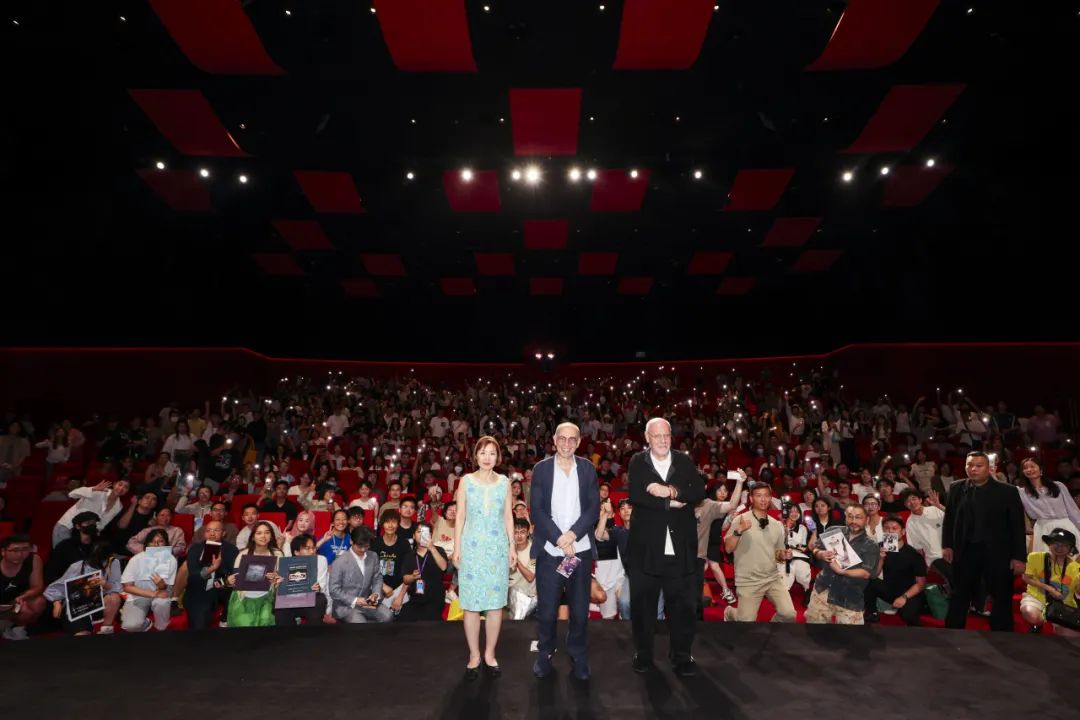
When an excited audience member asked, “What does Cinema Paradiso mean to you, Director?”, Giuseppe Tornatore responded with palpable warmth: “The Cinema Paradiso in my heart feels exactly like the atmosphere we’re sharing tonight. I made this film nearly 40 years ago - yet it doesn’t feel dated at all. To me, it remains strikingly modern, still resonating deeply with today’s world.”
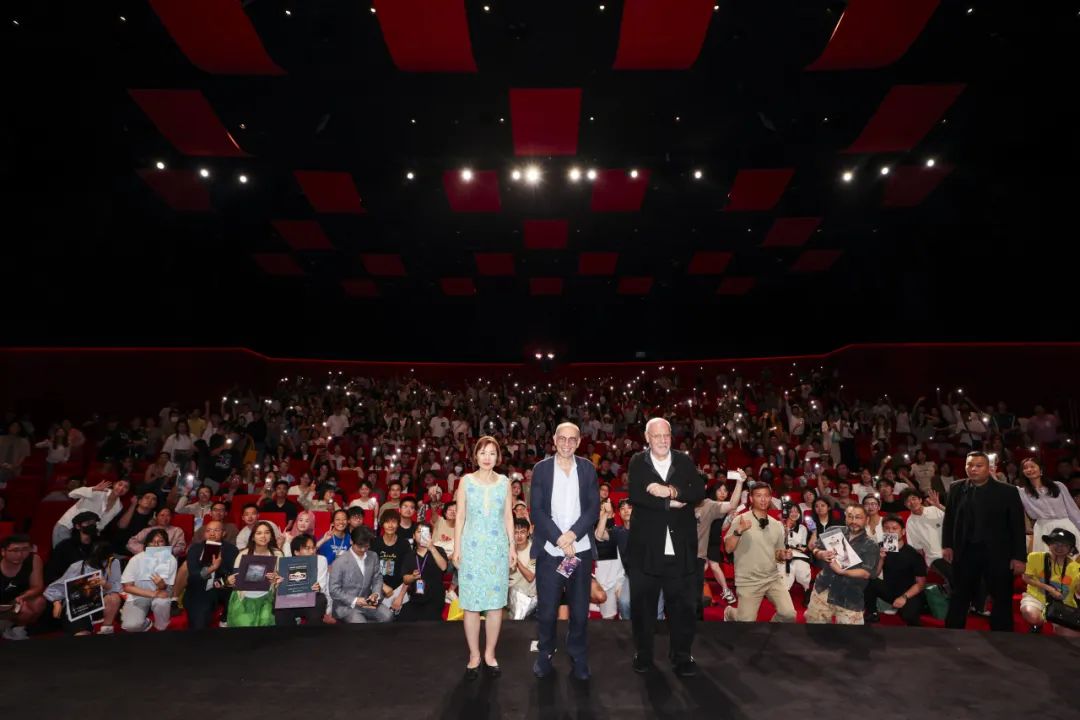
The session was hosted by Giuseppe Tornatore’s old friend Marco Müller, a film scholar equally cherished by Chinese audiences.

“The screenplay for Cinema Paradiso simmered for 11 years”
In Cinema Paradiso, young Toto’s boundless fascination with film reels leads him to befriend Alfredo, the projectionist at the local “Cinema Paradiso”, igniting his lifelong passion for cinema. Those curious eyes of Toto’s were, in fact, a mirror of Giuseppe Tornatore’s own childhood. The director reminisced that at six or seven years old, when he first stepped into a movie theater and saw giant close-ups glowing in the darkness, he couldn’t help but wonder where these figures “came from”. It wasn’t until he noticed the beam of light streaming from the projection booth at the back that he realized - that small window must hold the secret.
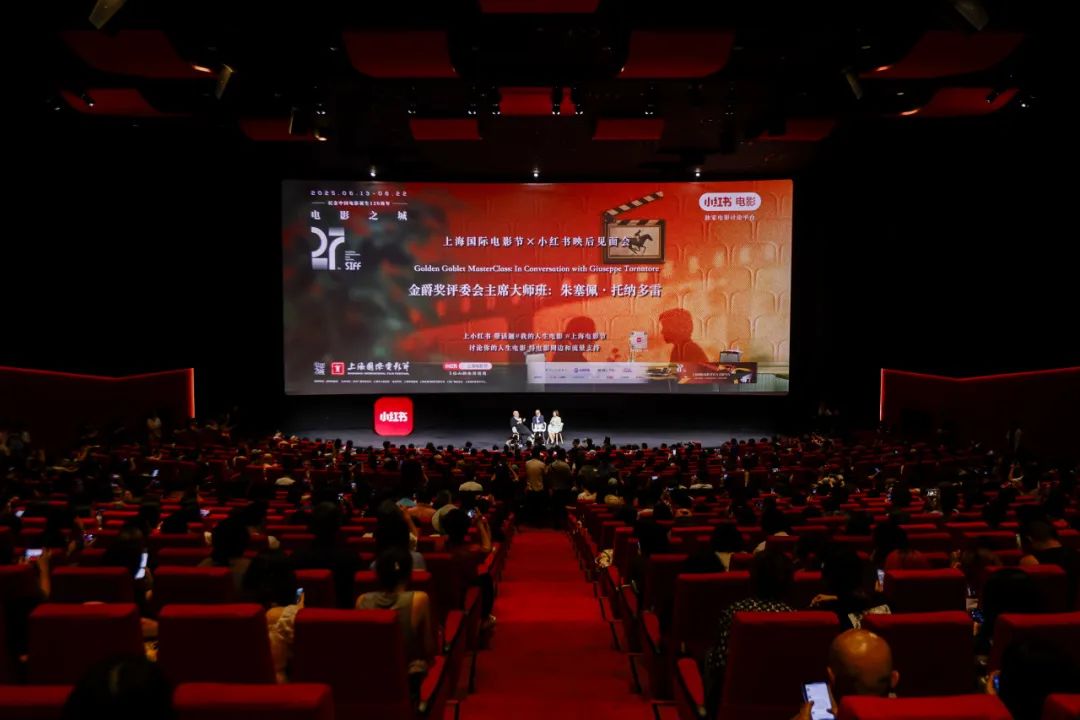
Later, Giuseppe Tornatore befriended a projectionist who taught him the craft of film projection and photography. By nine, he owned his first projector, regularly screening cartoons for neighborhood children at home. At fourteen, armed with a driver’s license, he balanced mornings at school with afternoons working as a cinema projectionist. “I’d operate the projector while studying the film strips,” he recalled, piecing together how individual frames wove into a cohesive story.
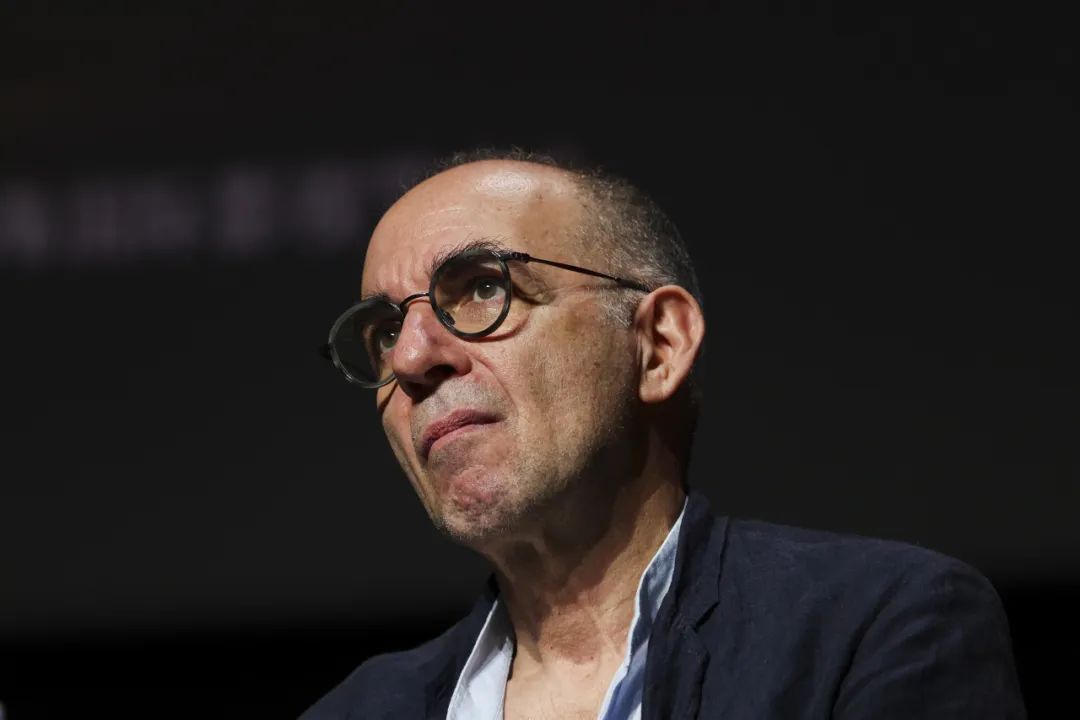
By the time Giuseppe Tornatore formally entered the film industry, the tale of a boy, an aging projectionist, and a shuttered small-town cinema had already begun germinating in his mind. Yet it took 11 years before he finally put pen to paper for Cinema Paradiso - a testament to patience yielding profound artistry. After completing the film, Giuseppe Tornatore once shared a conversation with Gabriel García Márquez, author of One Hundred Years of Solitude. Márquez offered this wisdom: “When a story first stirs in your mind, resist writing it immediately. Let it simmer. The longer you dwell on it, the richer it grows.” Time proved the literary giant right - while Giuseppe Tornatore nurtured the story for over a decade, the actual writing took merely two and a half months from first draft to final script.
“My films always tell a fragment of my life”
Giuseppe Tornatore’s entry into the film industry reads like something from a screenplay itself. When a renowned Roman director came to Sicily to shoot a gangster film and found himself over budget, he had to “outsource” part of the production - and the opportunity landed on the 26-year-old Giuseppe Tornatore’s lap. The producer, deeply impressed by Tornatore’s footage, later agreed to back his debut feature on one condition: “Polish the script first. If it’s good, I’ll invest.” With that, the young filmmaker secured the crucial first funding every novice director dreams of. He didn’t disappoint. By the time Cinema Paradiso catapulted him to fame in 1988, Giuseppe Tornatore was just 32.
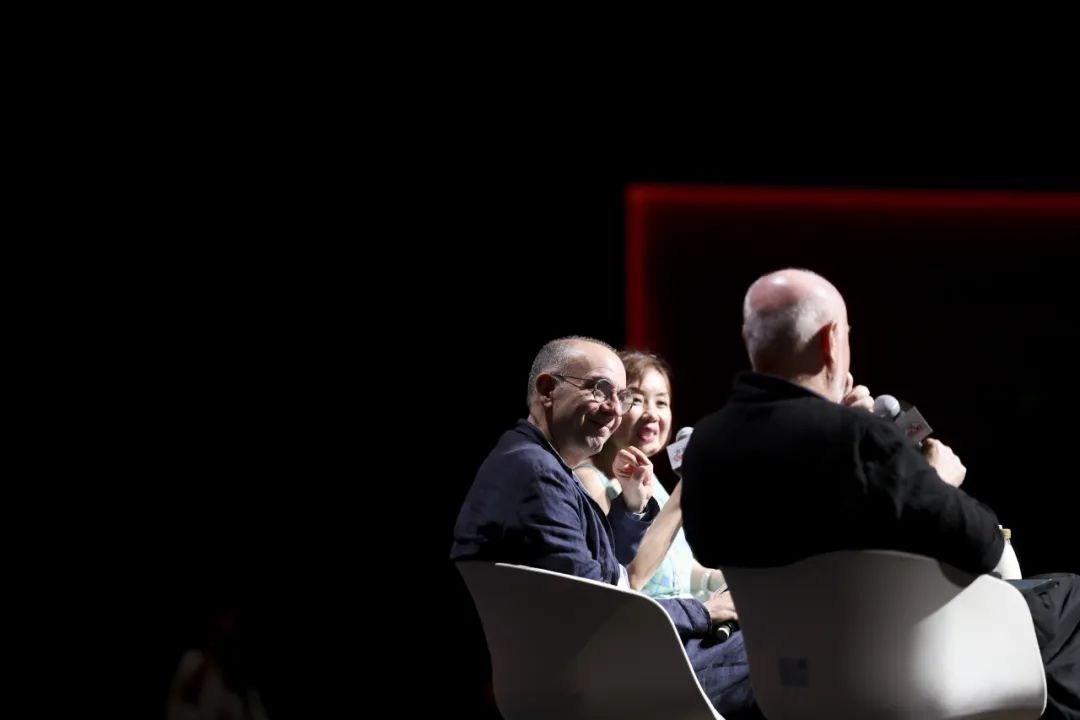
The film established a signature trait of his cinema: audiences always glimpse shards of the director’s own life. Those familiar with his work know Giuseppe Tornatore writes nearly all his screenplays himself. For him, writing is a solitary act - one that demands isolation. “Every film I make tells a chapter of my life,” he reflected. “Watching them now, each one pulls me back to a specific time and place.”
If Cinema Paradiso (1988) was his semi-autobiographical overture, then Baaria (2009) became his unabashed memoir. To portray his family and birthplace authentically, he drafted the script in his childhood town’s dialect. “The producer turned pale reading it,” Giuseppe Tornatore recalled with a laugh, “saying, ‘I can’t understand a word!’” The compromise? Two versions: one entirely in dialect, the other dubbed - but even the Italian voiceover retained the dialect’s tone.

Giuseppe Tornatore once remarked with a smile that Baaria had consumed too much of his emotional energy. Since then, he has consciously avoided setting his films in Sicily - yet that sense of belonging remains inextricable. “Many of my later films aren’t set in Sicily, but ironically, they contain more Sicilian essence than those actually filmed there.”
“Film festivals revive the passion of my youth”
In this era of relentless technological turnover, the communal experience of a whole town flocking to its lone cinema has faded into nostalgia. Smartphones, tablets, and computers now vie for audiences’ attention. Yet Giuseppe Tornatore insists filmmakers must hold fast to their original intent: “Make films the way they’ve always been made - with conviction.”
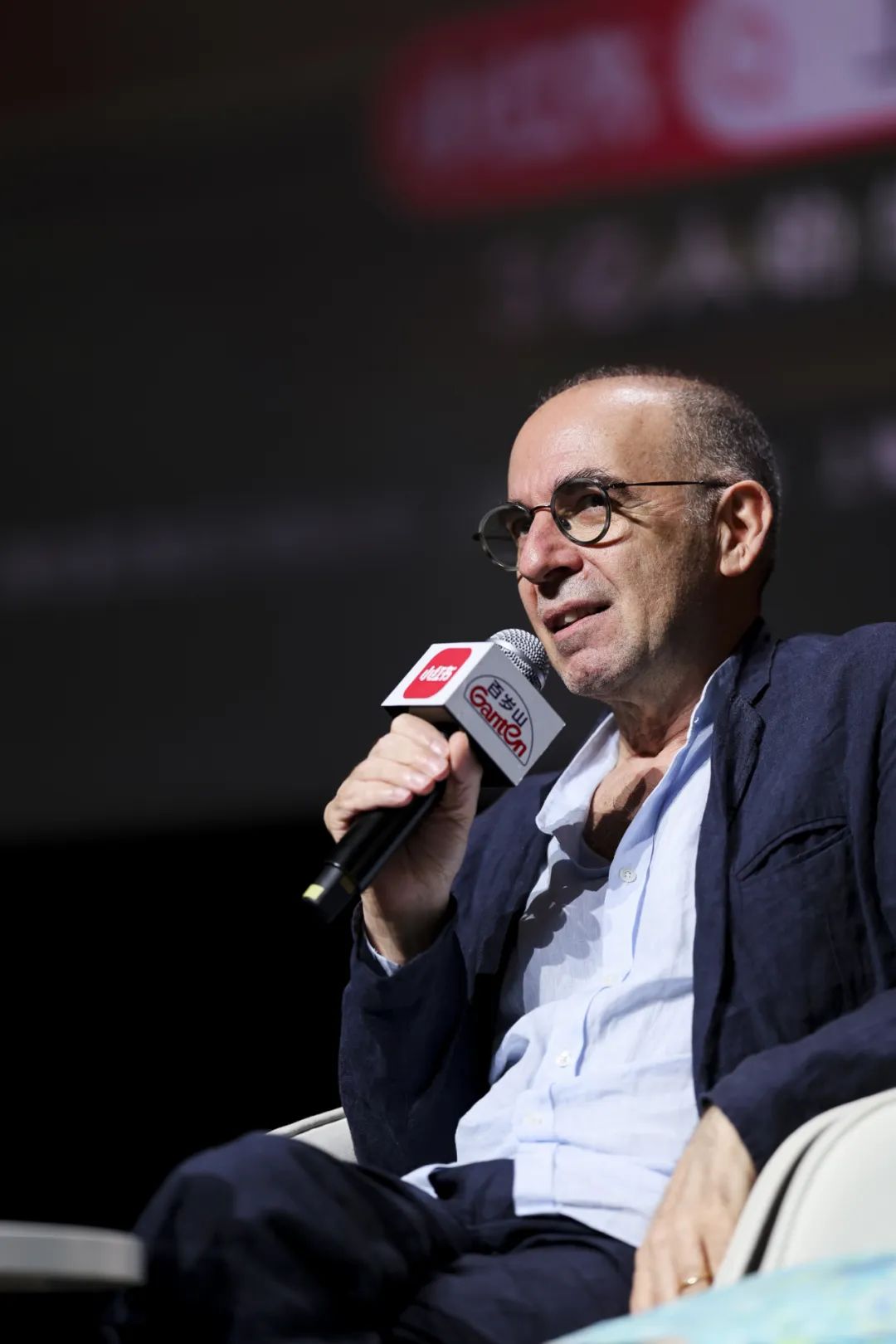
Having grown up in movie theaters, Giuseppe Tornatore learned early to gauge audiences’ reactions firsthand. “From day one, I knew films should resonate clearly with those watching in the dark,” he said. But even he admits to breaking his own rules. His 1994 psychological thriller Una pura formalità baffled many viewers - an outcome he’d anticipated. “I made it purely out of personal fascination, box office be damned.” This, too, reflects his “original intent”: “Every film I shoot stems from genuine passion. I don’t categorize projects as ‘should’ or ‘shouldn’t’, ‘good’ or ‘bad’. My principle is simple: never chase quantity - only passion.”
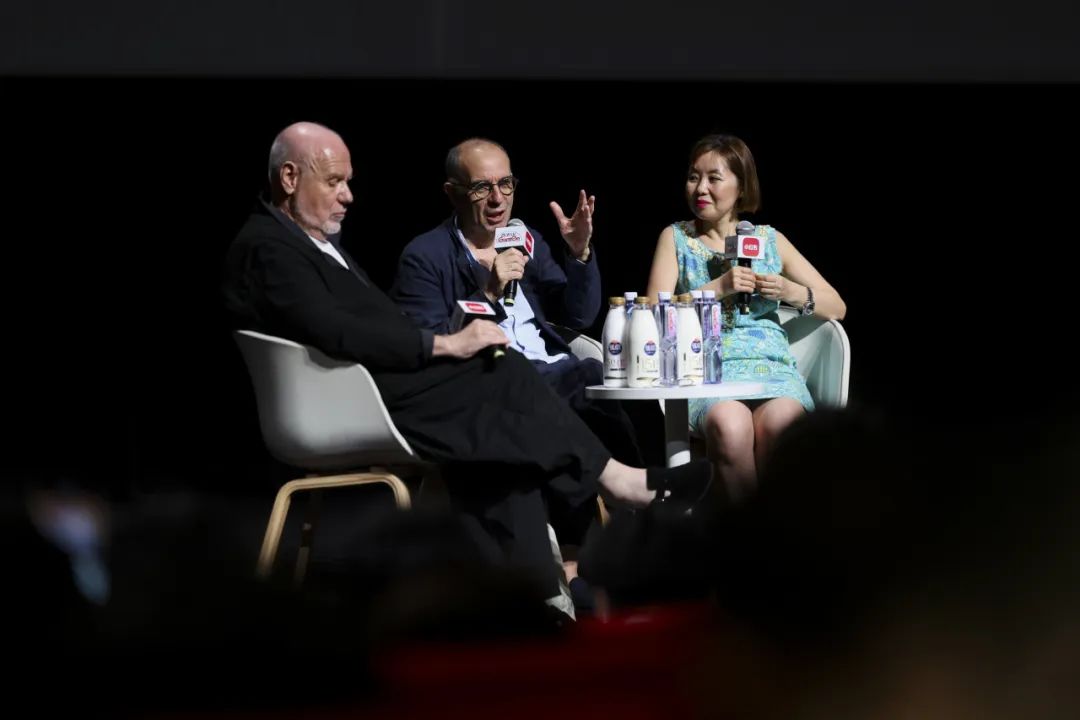
China boasts the world’s largest number of cinema screens, yet the impact of short videos on film viewership has become a hot topic among filmmakers. To Giuseppe Tornatore, this doesn’t constitute a “crisis” for the industry. After all, people today have access to - and are watching - far more films daily than they did 50 years ago. “New technologies will continue to create more ways to watch films,” he observed. “This should encourage us to make better movies, giving audiences more opportunities to experience life through cinema.” Still, he urges young people to watch films on the big screen whenever possible: “Nothing compares to the unique atmosphere of a movie theater - it transforms how you feel a film.”
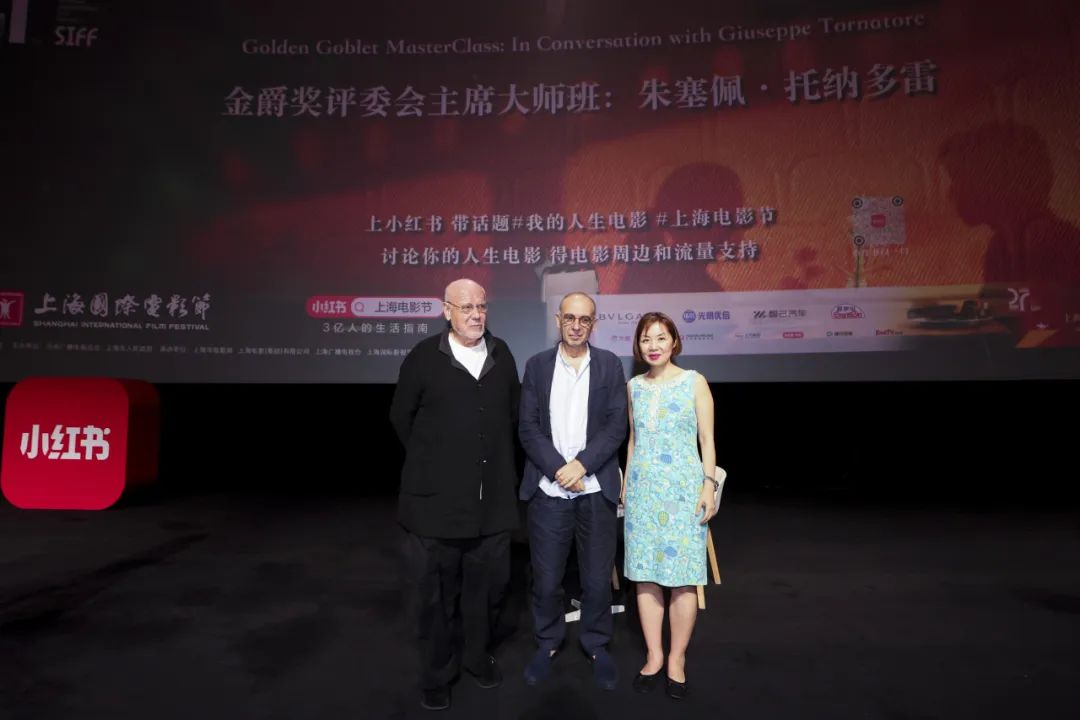
Giuseppe Tornatore practices what he preaches. Though equipped with private screening rooms at both home and his studio, he religiously visits cinemas, maintaining a rhythm of three films per week. During this Shanghai International Film Festival, he watched 12 films in just five days - a marathon that, in his words, “whisked me right back to the passionate cinephile I was in my youth.”







